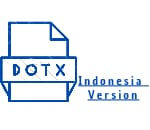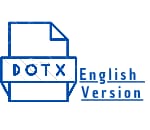PENGARUH PERSEPSI KEGUNAAN, KEMUDAHAN TERHADAP NIAT MENGGUNAKAN SISTEM E-FILING, E-BILLING, E-REGISTRATION DENGAN KEPERCAYAAN SEBAGAI INTERVENING
DOI:
https://doi.org/10.35137/jabk.v10i2.17Keywords:
Perceived Usefulness, Perceived Convenience, Intention to UseAbstract
This study aims to determine the effect of perceived usefulness and perceived ease of use on intentions to use e-filing, e-billing and e-registration systems and to determine the effect of perceived usefulness and perceived ease of use on intention to use through trust as an intervening variable at KPP Pratama Jakarta Jatinegara . The population in this study were individual taxpayers registered at KPP Pratama Jakarta Jatinegara with a total of 63 taxpayers as respondents. The sampling technique carried out by researchers is using the Accidental Sampling technique. Data analysis uses the help of Partial Least Square (PLS). The results of this study indicate that perceived usefulness, perceived ease of use and trust influence the intention to use. Trust cannot intervene in the effect of perceived usefulness on intention to use, whereas trust can intervene in the effect of perceived ease of use on intention to use
Downloads
Downloads
Published
Issue
Section
License
Copyright (c) 2023 Ade Budi Setiawan, Didi, Hanifah Atika Sari

This work is licensed under a Creative Commons Attribution-NonCommercial-ShareAlike 4.0 International License.
Authors retain the copyright of the work published in this journal and grant first publication rights to the journal. Authors may make separate, additional contractual arrangements for non-exclusive distribution of the journal-published version of the work (e.g., posting it to an institutional repository or publishing it in a book) with acknowledgment of its initial publication in this journal. Authors are permitted and encouraged to post their work online (e.g., in institutional repositories or on their websites) before and during the submission process, as it can result in productive exchanges, as well as earlier and greater citation of the published work.
Use of published articles will be governed by the Creative Commons Attribution license as currently displayed at Attribution-NonCommercial-ShareAlike 4.0 International (CC BY-NC-SA 4.0).




